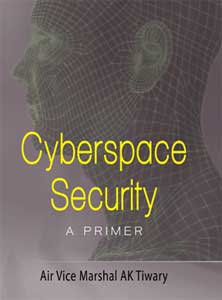 On one side Modi in his Srinagar rally literally snatched the moral high ground from the army that it had assumed by a series of path breaking stances. And on the other our top military brass was found grappling with the angst and fury of young officers serving in militant infested state of Jammu & Kashmir on the social media. The opinion and comments or rather abuses were widely circulated on the whatsapp and facebook. They tended to attribute initial failure of Uri incident to Budgam killings followed by moral high stand taken by the northern army commander.
On one side Modi in his Srinagar rally literally snatched the moral high ground from the army that it had assumed by a series of path breaking stances. And on the other our top military brass was found grappling with the angst and fury of young officers serving in militant infested state of Jammu & Kashmir on the social media. The opinion and comments or rather abuses were widely circulated on the whatsapp and facebook. They tended to attribute initial failure of Uri incident to Budgam killings followed by moral high stand taken by the northern army commander.
Army had in its shortest ever inquiry blamed nine soldiers of Rashtryia Rifles for the Budgam incident…However the soldiers operating on ground were left with a sense of betrayal by their seniors.
Army had in its shortest ever inquiry blamed nine soldiers of Rashtryia Rifles for the Budgam incident. Though It did send a strong positive political message to the masses in poll bound state of J&K. However the soldiers operating on ground were left with a sense of betrayal by their seniors. This inference could easily be drawn while skimming through these text messages.
The statesman like general found in the present Army Commander, who was lauded by all when he promptly removed a Brigadier from command, for his improper conduct a few months ago. Definitely it was trendsetting since the accused hailed from the same regiment as that of the general. The action was contrary to the past instances where parochialism over ruled professionalism. It was this army commander who endorsed the recommendations of a General Court Martial indicting a colonel in Machal fake encounter killings. And it was him who mustered courage in regretting the killing of two innocent youths at Budgam in a casually conducted operation by his troops. The Army’s stand on Machal case and later stand over the Budgam incident reflected a paradigm shift.
Though everyone in uniform upheld the former two decisions but many were left unconvinced by the Budgam stand. The broad argument by those against the stand was that in the midst of battle you do not refer to the standing operating procedures. Instead it is the training and soldierly instincts that dictates an outcome. A professional judgement of error has to be viewed differently. The AFSPA is therefore meant to safeguard troops from fallout of such errors. Having said that, the Army cannot appear as anti-people, damaging overall peace prospects in the longer run. This is where the vision and will of commanders come into play.
I am supportive of the general’s stand but the organisation appeared slackened in convincing those commanded. The majority Kashmiris are with the idea of India hence greater caution in conducting operations was mandatory. Unprofessionally established Mobile Check Post resulting in death of teenagers cannot be condoned by any true professional and this was needed to be drilled into the minds of ranks and file in clarifying the high moral stand.
The armed forces strength and operational fibre bounded by faith amongst the led and their leaders. Somehow the events in J&K followed by text traffic on social media tends to erode all this.
The antiquated mind set of army in dealing with such issues when caught under public glare needs a through revamp. In this era of IT, it is near impossible to hold on to the information. Gone are the days when staff officers would situate an event, draft it and get approval before circulation. The thirst for information at all levels is far greater than before. If the army does not evolve its media policy than I am afraid it will continue to succumb to rumours filling the info-gap. A media policy separate for internal and external population is a need of the hour.
General VK Singh’s episode on age row that brought in public the ideological divide within the army was an unfortunate series of washing the dirty linens in public. Without getting in to the correctness of the case be it legal or moral, the damage done was thus far reaching. The diminishing discipline standards witnessed at higher levels seems to have percolated down below. The manifestation of which can now be seen through the messages being exchanged by serving officers on the social media, targeting the army commander and the corps commander holding them directly responsible for the Uri incident.
The armed forces strength and operational fibre bounded by faith amongst the led and their leaders. Somehow the events in J&K followed by text traffic on social media tends to erode all this. It is unfortunate that General Hooda has been at the eye of this storm. Known for his personal and professional hygiene. This General is credited for his no nonsense hard core professional reputation. He being disregarded on social media pains all and sundry who understand military.
It would also be prudent to question whether these malicious texts discrediting commanders were not generated by the ISI. After all psychological warfare is very much an essential facet to the art of war.






Army commander is a very big word in Army …he is d one who issues op orders to his army ….even chief cant interfere in his mandate. …
but recent incident of northern army cdr jumping the gun n holding soldiers responsible for anantnag incident is clealy dictated by few factors
1. Pressure by political masters
2. Desire for next appt or lucrative career post retirement
3. Not able to take stand against ambitious ruling party in poll bound state.
Sense of betrayal prevails amongst fighting ranks…
…very relevant article. …
There is no such thing as taking “moral highground”. The Army Commander doesnt have to play to the political gallery. What ever the reasons be, because of the environment in the valley due to the elections it would appear that the Army Commander was bending to political pressure on him to assauge the feelings of the public. The BJP is trying to get a political niche in the valley. So it would appear to be what it is. You have to choose between political milage and the morale of the forces. Generals may come and go but the problem of Kashmir will never be resolved, but you may end up doing damage to the morale and the mind set of the forces operating there. Where suicide attacks take place anyone who tries to break the barrier will have to be dealt with necessary force there is no time for decision making in such situations – its time to react and thats what the men did. So lets not make a big deal about it. Remember its the young officres and soldiers who carry the day – they are the ones who stand up to the call of duty when the time arises. Dont forget the performance put up by these young officres of the Indian Army in Kargil. The path of Generalship has to be tread upon with caution and maturity. There is nothing righteous about the war we are fighting, we are loosing men everyday, we have to care about that. Colateral damage will be there in these kind of operations and we have to accept them.
Bang on and bulls eye in identifying the critical lacunae… question is are we doing something about it or is it that some thing will happen eventually!